NSF Grants Bring Together Computer, Political Scientists for International Conflict Projects

UT Dallas political and computer scientists have received nearly $2 million from the National Science Foundation to collaborate on two projects focused on international conflict.
The first grant includes $1.5 million to create a research tool that uses big data to provide updated information on civil protests and unrest, and international conflicts.
A second grant totaling $401,051 will help researchers study Colombia’s efforts to protect its power grid, pipelines and other infrastructure from decades of physical assaults and cyberattacks.
The National Science Foundation awarded the three-year grants jointly to faculty members in the School of Economic, Political and Policy Sciences (EPPS) and the Erik Jonsson School of Engineering and Computer Science, who will collaborate with researchers from other universities.
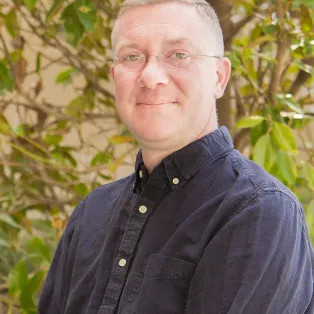
For the big data project, researchers will create a platform that can mine vast news feeds in multiple languages for political conflict and cooperation events, and code the locations of developments. The goal is to help drive decisions about foreign policy, international relations, civil war prevention and human rights policies.
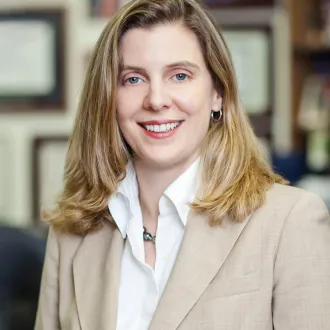
“Previous similar projects have been limited by geography or used a small number of news sources,” said Dr. Patrick T. Brandt, professor of political science and lead principal investigator on the project. “The goal here is to have over 30 years of historical and real-time coverage of information coded from news reports. We will also include the latest techniques from computer science to improve how we detect new political interactions, actors and locations of their activities.”
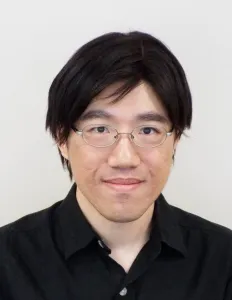
Dr. Latifur Khan and Dr. Vincent Ng of UT Dallas will bring big data expertise and knowledge about how to extract the geographic and semantic meaning from the news.
“We are dealing with a massive amount of data, and it will only grow over time,” said Khan, a professor of computer science. “There are challenges in handling data on this scale. If we want to mine for the location of a news article, and extract metadata from articles not only in English, but also in Spanish and Arabic, then we have to develop tools that can quickly sift through all the raw text.”
Khan said he is excited about the interdisciplinary nature of the project, as working on big problems from different perspectives provides better understanding.
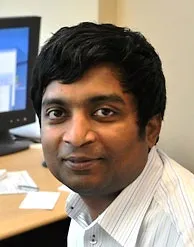
“Our end goal is to build an open source tool not only for the UT Dallas community but for researchers from other universities doing political research,” he said.
Other UT Dallas faculty involved include: Dr. Jennifer Holmes, professor and program head of political science, public policy and political economy, who will develop specialized searches for Latin American countries; and Dr. Vito D’Orazio, assistant professor of political science, who will lead efforts on visualization and analysis.
The second project will study Colombia’s response to five decades of attacks on its electrical grids, pipelines, power transmission lines, bridges and other infrastructure due to conflicts between the government, paramilitary groups and guerilla groups.;
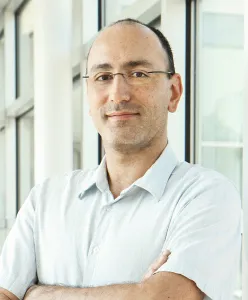
Dr. Alvaro Cárdenas, assistant professor of computer science and member of the Cyber Security Research and Education Institute, is principal investigator. Holmes is co-principal investigator.
Cárdenas, a native of Colombia, specializes in computer security, cyber-physical systems, network intrusion detection and wireless networks. Holmes, an expert on political violence, has written extensively about Colombia.
Cárdenas will focus on the development of a series of technologies, best practices and emergency response principles to protect and react quickly to attacks.
“Understanding the negative societal impact of attacks to critical infrastructures is a key component for risk management. We want to characterize the consequences of attacks in order to identify the right amount of resources to protect and respond to emergencies,” Cárdenas said. “Colombia has experienced over 2,000 attacks to their power grid in the last 15 years, giving us unique insights into the consequences of attacks and the interdependencies of different infrastructures.”
Holmes will focus on strategic aspects of attacks and the policy implications of responding to them.
“It is important to understand when the grid or a pipeline is targeted. It may be a diversion to open up the ability to operate elsewhere to cause political pressure on the government,” she said. “Second, there are significant issues of policy coordination of multiple public and private actors.”
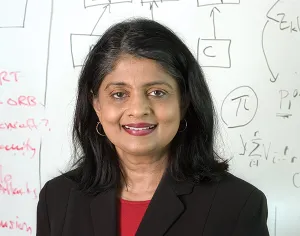
The projects also demonstrate the critical role that public policy plays in cybersecurity, said Dr. Bhavani Thuraisingham, executive director of the Cyber Security Research and Education Institute and the Louis A. Beecherl Jr. Distinguished Professor in the Jonsson School.
“If our security techniques are not rooted in realistic policies, then it will be difficult to make them applicable to real-world scenarios,” Thuraisingham said. “Both projects, one investigating policy-based critical infrastructure protection, and the other capitalizing on practical applications of extensive research in data mining and analytics, illustrate how interdisciplinary cybersecurity and analytics research is essential to develop useful solutions to hard problems.”
Researchers at the University of Oklahoma, University of Minnesota, University of Delaware, the City University of New York John Jay College of Criminal Justice and the University of Texas at Austin also will contribute to the projects.
ABOUT THE UT DALLAS COMPUTER SCIENCE DEPARTMENT
The UT Dallas Computer Science program is one of the largest Computer Science departments in the United States with over 1,600 bachelor’s-degree students, more than 1,100 master’s students, 160 PhD students, and 80 faculty members, as of Fall 2015. With The University of Texas at Dallas’ unique history of starting as a graduate institution first, the CS Department is built on a legacy of valuing innovative research and providing advanced training for software engineers and computer scientists.




